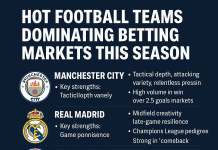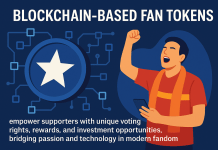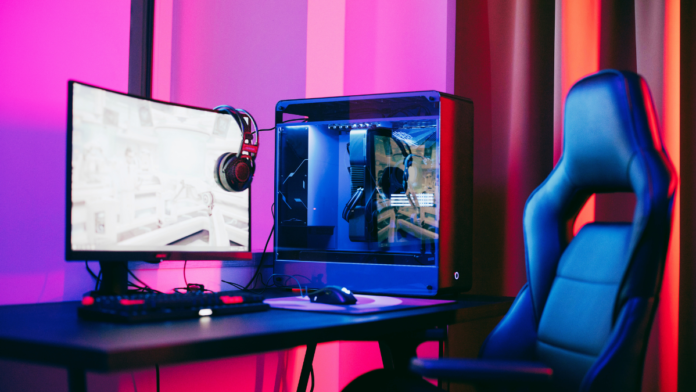Have you ever wondered, “Are eSports players athletes?” This question has sparked debates in gaming circles and beyond. Today, HTC News will dive deep into this topic to unravel the truth. Spoiler: You might be surprised by what we find.

Defining “Athlete” in the Modern World
Before we answer, “Are eSports players athletes?” Let’s define what being an athlete means. Traditionally, athletes are individuals who compete in physical sports that require strength, agility, and endurance. Think football players, sprinters, and swimmers.
But in the 21st century, the definition of an athlete has expanded. Today, it includes anyone who engages in competitive activities that require skill, practice, and mental fortitude. And that’s where eSports players come in.
The Physical Demands of eSports
You might think eSports players just sit around playing video games all day. But let’s dispel that myth right now. Professional gamers spend hours honing their skills, often training as rigorously as traditional athletes.
Playing games like League of Legends or Call of Duty at a professional level demands intense concentration, rapid reflexes, and fine motor skills. The physical toll on hands, wrists, and eyes is real. Have you ever heard of “gamer’s thumb” or “computer vision syndrome”? These are common ailments among pro gamers.
A Mental Game of Strategy and Skill
One primary reason to consider eSports players is the mental aspect. Gaming at a high level isn’t just about quick reflexes; it’s about strategy, teamwork, and split-second decision-making. Players memorize complex maps, strategize around opponents, and adapt to changing scenarios.
Consider games like Starcraft II, where players must manage resources, build armies, and outmaneuver their opponents. The mental gymnastics required are on par with those of chess grandmasters.
Training and Lifestyle: Similarities to Traditional Sports
The life of a professional eSports player mirrors that of traditional athletes in many ways. Daily practice sessions, strategic planning, and even physical workouts are common. Yes, you read that right—many eSports teams include physical fitness regimens to keep their players in peak condition.
Teams have coaches, analysts, and psychologists to support players’ performance and well-being. Like traditional athletes, eSports players follow strict routines to optimize their performance.
Recognition by Official Bodies
Another compelling argument for the “are eSports players athletes” debate is recognition by official sports bodies. The International Olympic Committee (IOC) has discussed including eSports in the Olympics. Several countries, including the US, recognize eSports players as athletes, granting them visas similar to those given to traditional sports competitors.
This official recognition underscores the legitimacy of eSports as a sport and its players as athletes.
Perspective of the eSports Industry
The eSports industry treats players like athletes. Major tournaments offer prize pools rivaling those of traditional sports events. Players have sponsorships, endorsements, and fan followings similar to those of their counterparts in the NBA or NFL.
Organizations like ESL and Riot Games invest heavily in player development, infrastructure, and competitive integrity. This professional approach aligns eSports more closely with traditional sports.
eSports Athlete Salary: Breaking Down the Numbers
Base Salary and Contracts
At the core of an eSports athlete’s income is their base salary, typically stipulated in a contract with their respective team or organization. These salaries vary widely depending on the game, the athlete’s skill level, marketability, and the team’s resources. For instance, in top-tier games like League of Legends, Dota 2, and Counter-Strike: Global Offensive, salaries for prominent players can range from $50,000 to over $500,000 annually. In contrast, players in less popular games or lower tiers may earn considerably less, sometimes under $20,000 annually.
Prize Money
A significant portion of an eSports athlete’s income comes from prize winnings in tournaments and championships. These prizes can be substantial, especially in games with major international tournaments. The International, Dota 2’s flagship tournament, is renowned for its massive prize pools, with the 2021 event offering over $40 million. In such events, top-performing teams and players can take home millions. Even in less lucrative games, tournament winnings can still be a vital source of income, often supplemented by performance-based bonuses from their teams.
Sponsorships and Endorsements
Similar to traditional sports, sponsorships, and endorsements play a crucial role in an eSports athlete’s earnings. Corporations ranging from tech giants like Intel and Nvidia to non-endemic brands like Red Bull and Mercedes-Benz invest heavily in eSports sponsorships. A top-tier athlete with a significant following can attract lucrative deals, earning additional income through brand partnerships, sponsored content, and advertising. These deals often depend on the player’s reach and influence on social media and streaming platforms like Twitch and YouTube.
Streaming and Content Creation
Many eSports athletes supplement their income through streaming and content creation. Platforms like Twitch, YouTube, and Facebook Gaming offer monetization opportunities through ads, subscriptions, donations, and sponsorships. Popular streamers can earn substantial amounts, sometimes rivaling or exceeding their earnings from competitive play. For instance, former Overwatch League MVP Jay “Sinatraa” Won reportedly earned more from streaming than his professional salary during specific periods.
Factors Influencing Salary Disparities
Several factors contribute to the wide disparities in eSports salaries:
Game Popularity
Titles with larger player bases and viewer counts typically offer higher salaries due to more excellent sponsorship and advertising revenue.
League Structure
Structured leagues with franchising, like the Overwatch League and the League of Legends Championship Series, tend to offer more stability and higher salaries than open tournament circuits.
Regional Differences
Salaries can vary significantly by region. For example, North American and European players generally earn more than their counterparts in Southeast Asia and Latin America.
Individual Marketability
Athletes who build a solid personal brand and engage with fans effectively often secure higher-paying endorsements and sponsorships.
So, Are eSports Players Athletes?
In a word, yes. eSports players meet many of the criteria that define athletes today. They train rigorously, compete at high levels, and face physical and mental challenges. The industry and official bodies recognize their status, and their lifestyles reflect those of traditional athletes.
So next time someone asks, “Are eSports players athletes?” you’ll know the answer. It’s a resounding yes. Embrace the new era of competition where digital prowess is just as celebrated as physical skill. Welcome to the future of sports.
Remember, whether you’re chasing touchdowns or high scores, dedication and competitive spirit make you an athlete. And in that respect, eSports players are true athletes.
read more: How eSports Teams Make Money: A Deep Dive into the Revenue Streams
























